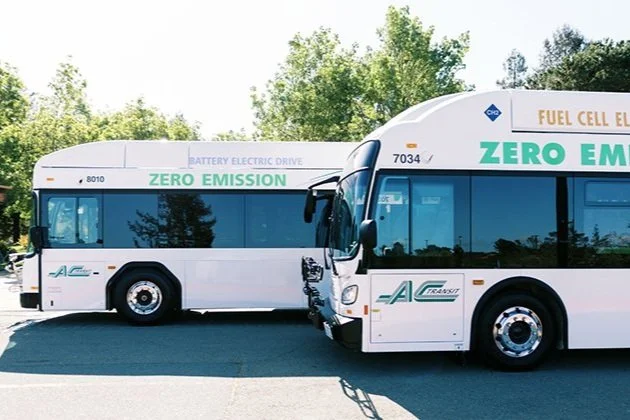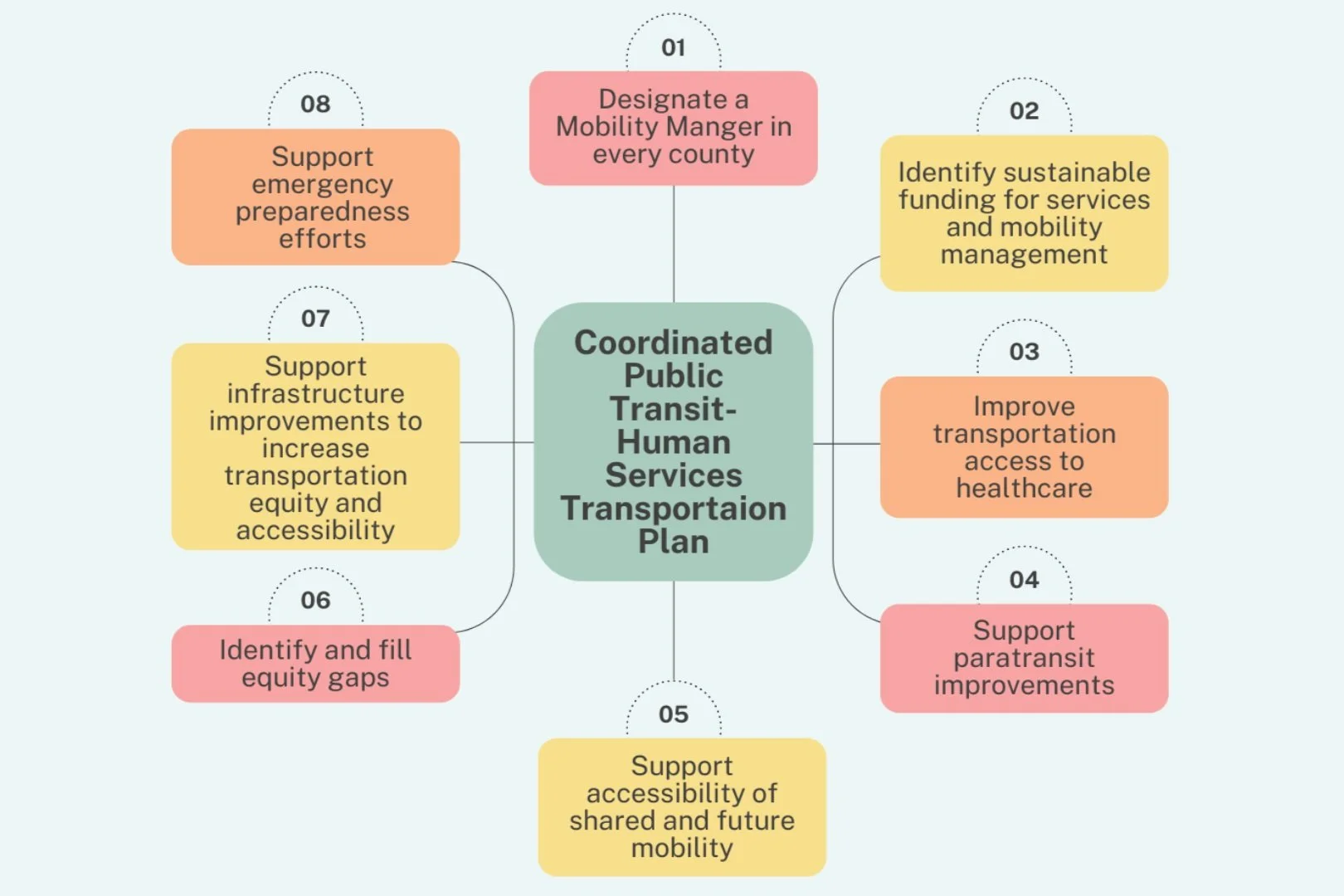At its recent August meeting, the statewide transit transformation task force recommended transit priority policies and funding, and discussed opportunities for workforce development and reforming a major funding program. We were heartened to see the strong support and hear many public comments in support of transit priority and other recommendations. However, the concerns of members including representatives of a major business organization and highway lobby group opposed or abstained on various items, foreshadowing challenges in getting strong recommendations implemented and the importance of building support. Continued attention from riders and advocates will be needed to support good recommendations and to ensure that recommendations are implemented.
Read MoreAt board meetings in the last week, Bay Area transit agencies continue to grapple with the challenges around regional transit funding and solutions being proposed in a regional process with the Metropolitan Transportation Commission, legislators, and other stakeholders. Riders are clearly expressing preferences for full funding and an improved, coordinated multi-agency system.
Read MoreThe Regional Transportation Funding Select Committee was divided between starkly different directions at its most recent meeting on August 26th - a 9-county option, 4-county option, and multiple measure for different agencies and counties. The Committee continues to have questions on costs, benefits, and revenue sources. Much work remains to be done before the MTC’s deadline for September 23.
Read MoreThere are many rail expansion projects happening in Northern California – from Caltrain electrification, BART to Silicon Valley, potential SMART expansion, and expanded San Joaquin and ACE service with the Valley Rail Project. While these various plans for rail expansions are overall good, Northern California lacks a vision for what our rail network can be. Our region needs to prioritize a suite of upgrades along the existing and planned routes that will deliver an electrified, frequent, fast, and well-connected mega-regional rail network.
Read MoreOn Monday, August 26, the Transportation Revenue Measure Select Committee will start to discuss options for legislation in 2025 to authorize a regional transportation funding measure in 2026. The options present stark contrasts - an “abundant” option to set transit on a path toward thriving, a “less worse” option set up to slow the decline of public transportation in the Bay Area; and a “hunger games” scenario with different agencies and counties fielding many different ballot measures.
Read MoreThe AC Transit Board of Directors voted on June 12 to approve intra-agency free transfers, helping AC Transit riders and complementing the rollout of free and reduced price transfers across agencies around the region. Unfortunately, the rollout of intra-agency free transfers at AC Transit, and inter-agency free and reduced price transfers is now awaiting the delayed rollout of the next-generation Clipper fare payment system.
Read MoreBay Area transit agencies are starting to coordinate schedules more systematically, and the results are starting to show. These include improvements at the core regional rail hub connecting BART and Caltrain, many improvements linking bus connections to BART/Caltrain regional rail, and North Bay connections linking local buses to SMART rail and Golden Gate express bus service.
Read MoreSeamless Bay Area co-founder Ian Griffiths is stepping down as the organizations’ Policy Director and co-Executive Director, and Adina Levin steps into the role of sole Executive Director. Ian shares his reflections on the journey so far and the continued importance of Seamless Bay Area’s work.
Read MoreAn important Transportation Revenue Measure Select Committee convened by the MTC is meeting on Monday and will be starting to shape scenarios to consider for a regional transportation ballot measure. While there are many details to be considered, it’s clear that the Bay Area faces a major choice about what its future transportation network will look like: A future where transit is declining and a revenue measure that will reduce the size of cuts and speed of decline or a future where transit is improving — increasingly fast, convenient and abundant, accessible and affordable — and a revenue measure will promise and deliver improvements to the public.
Read MoreFor the first time in history, the Bay Area’s draft regional plan is based on creating a network of faster, more frequent transit around the region, based on collaboration with agencies. The updated new maps from MTC and transit agencies weave in plans that local agencies have developed for faster, more reliable, more frequent service. And the new maps include plans to fill in gaps that jumped out for service needs that aren’t being met by the current system.
Read MoreStudents at four universities will have their BayPass travel benefits extended an additional year due to high demand and the program’s popularity. A new wave of employees are gaining access to the Clipper BayPass Program. And positive reviews from existing BayPass holders are showcased in a new MTC video.
Read MoreStakeholders across the Bay Area convened at the inaugural Transportation Revenue Measure Select Committee in an effort to reset the conversation and reach a consensus around a future regional funding measure. At the first meeting there was broad agreement on top priorities – addressing the fiscal cliff, improvements for transit riders, and network management. Committee members also recognized that there are a diversity of needs across the Bay Area, but that a region-wide transportation funding measure remains crucial to addressing shared transportation challenges and achieving transformative improvements across the network.
Read MoreExpediting transit priority projects, improving inter-agency service and fare coordination, and safety policies were the focus of the Statewide Transit Transformation Task Force’s fourth meeting in San Francisco on June 17th. Local advocacy groups organized a ‘ride-along’ with Task Force members prior to the meeting highlighting the needs, challenges, and initiatives to improve Bay Area transit.
Read MoreWe are at a pivotal moment for the future of Bay Area transit. SB 1031, which would have authorized a regional transportation funding ballot measure, was pulled from the 2024 legislative cycle on May 31st. However, this is not the end of the fight and a regional measure remains essential. Now is the time to dig in and fight for regional solutions for our regional transit problems.
Read MoreOn May 11th, Silicon Valley Bicycle Coalition hosted a bike ride and poster session on El Camino Real to highlight bike lanes, pedestrian improvements, transit speed, and affordable housing projects and plans in Santa Clara and San Mateo Counties. The poster session showed only a fraction of the many changes happening along the corridor, which is evolving according to a vision created nearly two decades ago to transform an auto-oriented corridor with more sustainable, multi-modal transportation and with walkable, mixed use development.
Read MoreMTC is set to release a draft of the Coordinated Public Transit-Human Services Transportation Plan, outlining the Bay Area’s near-term transportation blueprint for people with disabilities, older adults, and low-income populations. This plan addresses the challenges with funding gaps, accessible transit infrastructure, and reinforces other near-term regional plans.
Read MoreHigher frequencies, faster trip times, expanding coverage, and easier transfers are needed to increase transit availability. These priorities were the focus of the Transit Transformation Task Force’s (TTTF) third meeting in San Diego on April 15th. The TTTF, a major effort to define reforms and funding needed to transform transit in California, is focused on developing benchmarks for service levels, funding recommendations, and governance reforms needed to grow statewide transit ridership.
Read MoreLast week, the critically-important Connect Bay Area legislation (SB 1031 Wiener/Wahab), authorizing a regional transportation funding measure, was amended with changes responding to concerns from transit agencies and other stakeholders. The amendments refine the funding formula to ensure funding for all counties including those that aren’t facing imminent operating funding gaps; clean up language about a consolidation study; set guardrails on MTC’s authority to coordinate service.
Read More

















